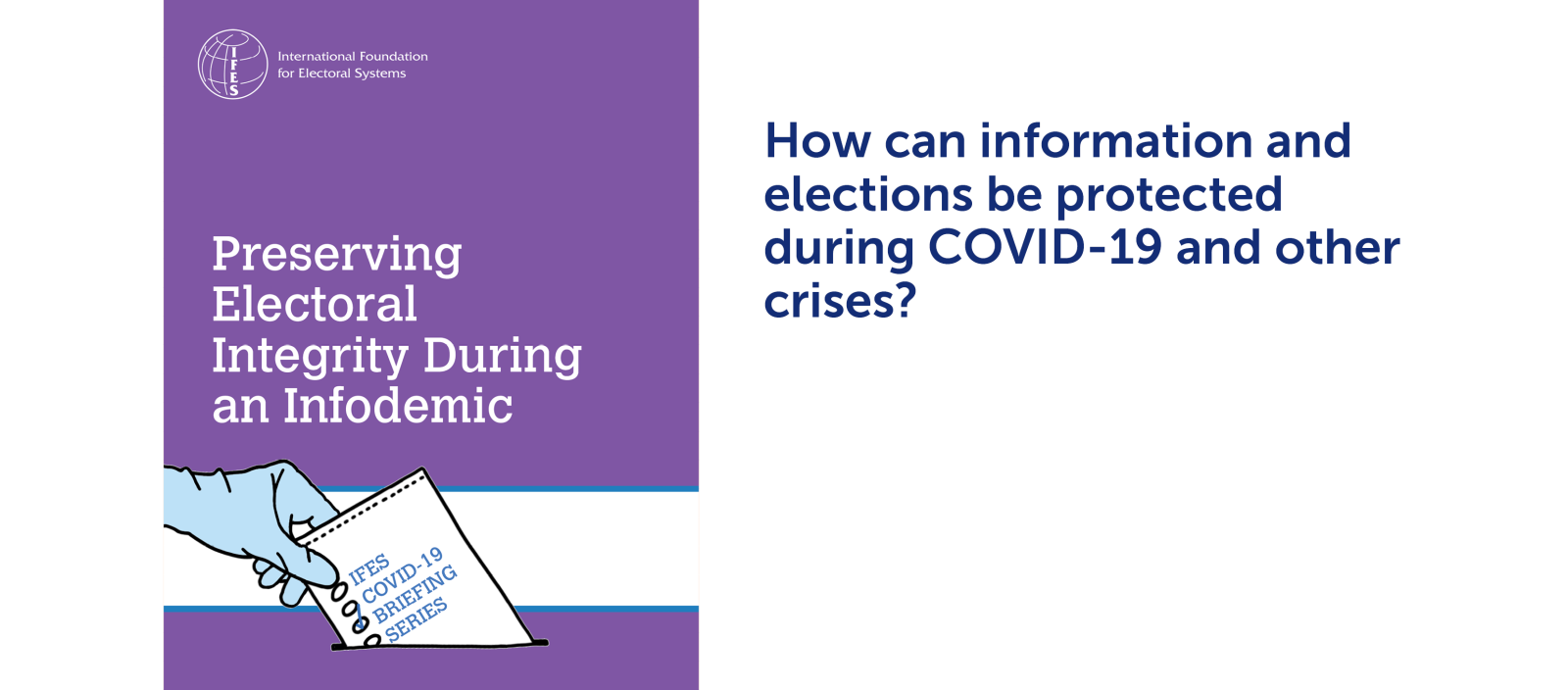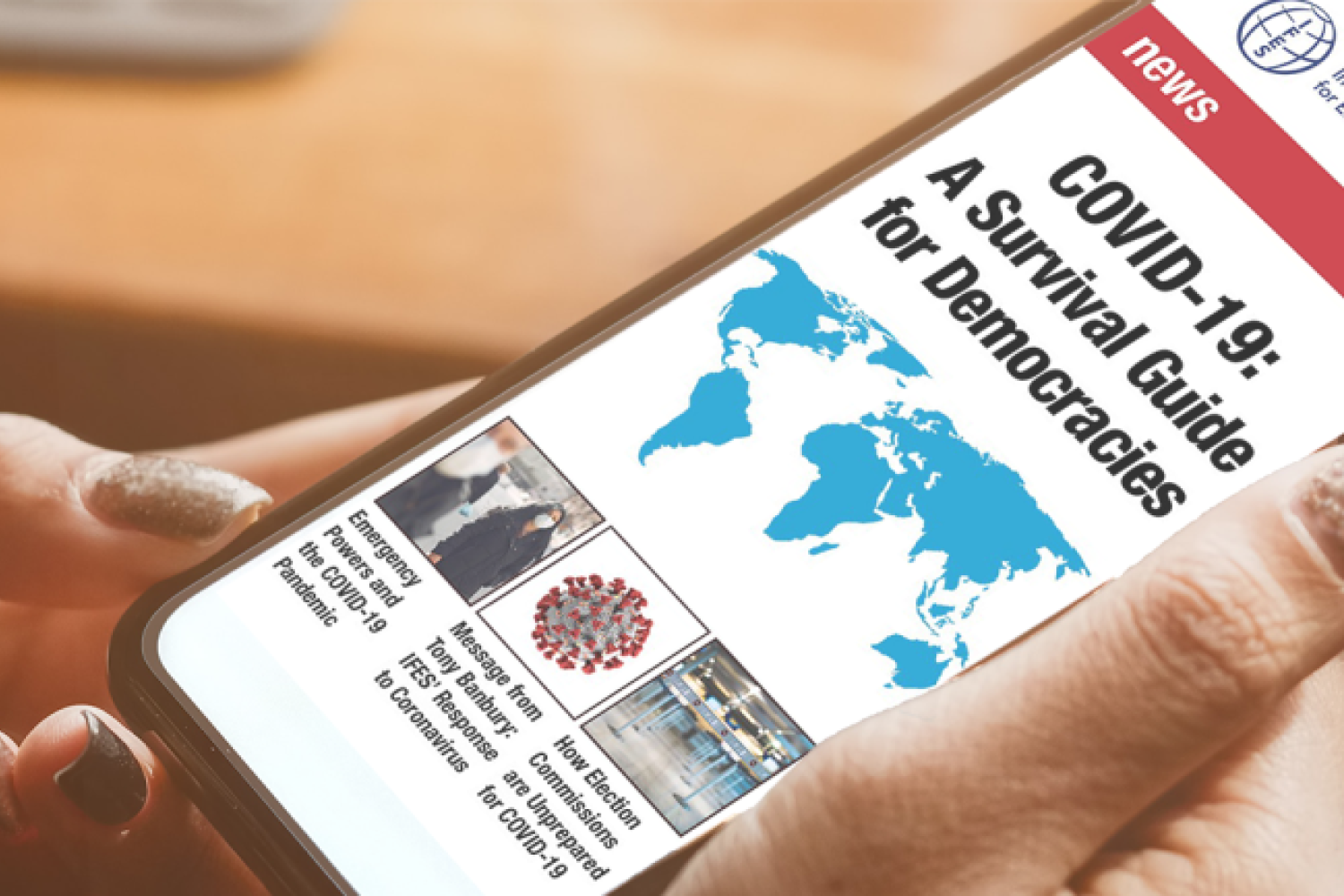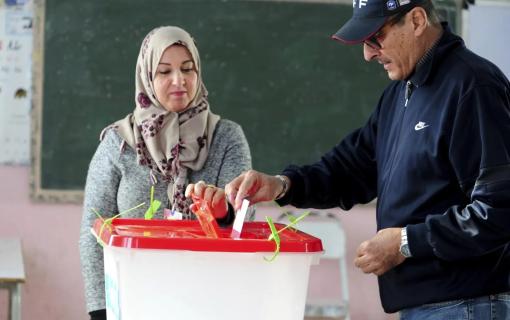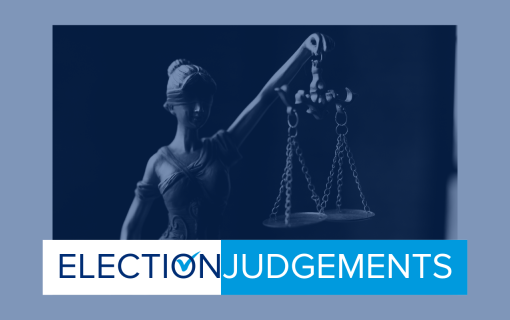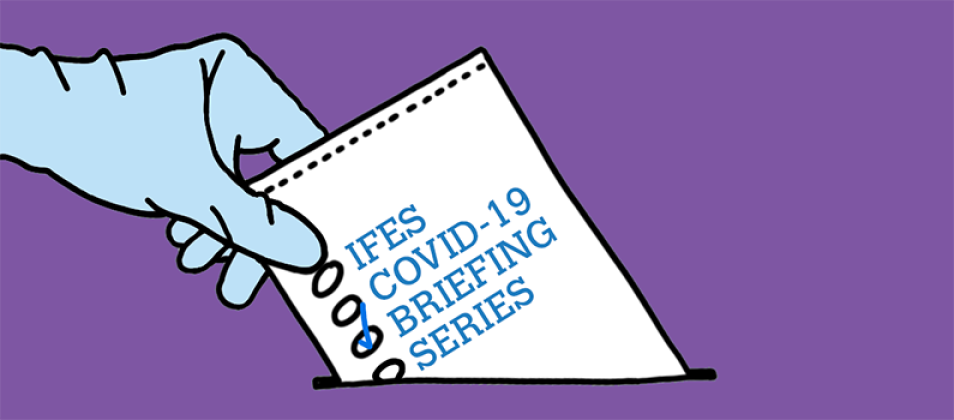
IFES COVID-19 Briefing Series: Preserving Electoral Integrity During an Infodemic
How can information and elections be protected during COVID-19 and other crises?
Preserving Electoral Integrity During an Infodemic, the third paper in the International Foundation for Electoral Systems’ (IFES) COVID-19 Briefing Series, looks closely at this question and offers guidance for democracy and governance practitioners, policymakers and supporters.
As election authorities work to conduct elections safely during the COVID-19 pandemic, their efforts could be undermined if the information space around elections is inadequately defended. Viral misinformation, disinformation campaigns directed by anti-democratic and opportunistic actors and the amplification of hate speech create immediate and long-term electoral integrity challenges for democracies. Changes to election procedures due to COVID-19 could provide fertile ground for information manipulation that might disenfranchise or endanger voters. As challenges multiply, authoritarian actors looking to capitalize on confusion will continue to push narratives to undermine confidence in democratic institutions and processes.
Preserving Electoral Integrity During an Infodemic examines four areas of information integrity challenges related to COVID-19:
- Campaign Period: With limited avenues for campaigning during the pandemic, parties and candidates are likely to move online to reach and mobilize voters. As a result, ongoing efforts to expand social media monitoring and oversight have taken on new urgency.
- Electoral Administration and Operations: Fundamental changes to established election processes will require voters to learn new information. In this environment, traditional voter suppression tactics may become harder for voters to discern. Mistakes and irregularities in election administration, which are likely to increase due to new procedures, may spawn narratives of widespread fraud. Additionally, bad actors may stoke COVID-19 fears to disrupt voter registration, turnout or election processes.
- Post-Electoral Period: Disinformation about heightened infection rates after an election could create false perceptions that elections cannot be conducted safely. Additionally, misinformation or disinformation that capitalizes on mistakes due to changing procedures to amplify narratives of fraud could lead to politically motivated attempts to undermine electoral integrity, delegitimize results or launch frivolous legal challenges.
- Democratic Integrity: Governments have passed a number of restrictive laws to curb misinformation, disinformation and hate speech related to COVID-19. These laws are an extension of an existing global trend of heavy-handed legislating, in which policymakers seek to criminalize problematic content in ways that undermine freedoms of expression and the press. These laws are often applied in a partisan manner that politically advantages incumbent parties and politicians.
IFES recommendations:
- Election management bodies (EMBs) should focus on protecting voter participation and inclusion through proactive communication strategies that publicly share accurate, timely information and increase voters’ understanding of new processes and procedures. EMBs should also develop crisis communication plans and consider linking traditional and social media communication channels with public health authorities.
- Civil society organizations should increase their monitoring activities to enhance transparency and accountability of public officials and institutions and to counter hate-speech messaging and disinformation.
- Political parties and candidates should commit to running campaigns free of hate speech and disinformation, proactively comply with disclosure requirements for political advertising on social media and campaign finance rules and build messaging responsive to COVID-19 into their voter outreach plans.
- International donors and technical assistance providers should discourage legislation or regulations that criminalize misinformation, disinformation and hate speech in ways that disproportionately threaten freedoms of expression and the press, while supporting legal and regulatory reforms that protect marginalized groups and promote inclusion.
- Social media platforms should ensure that content constituting election interference and hate speech, as defined in their community standards and guidelines, is prioritized for review and effective action. They should also continuously integrate diverse feedback into how these violations are defined. Platforms should continue working with EMBs and public health authorities to widely disseminate trusted public health and election information.
Read and download Preserving Electoral Integrity During an Infodemic.
Find the other papers in the IFES COVID-19 Briefing Series which tackles seven fundamental areas of concern for democracy and governance in the wake of the pandemic.
Learn more at IFES’ COVID-19 Survival Guide for Democracies.
Follow #COVIDxDemocracy for new analysis and innovative solutions during the pandemic.
Contact media@ifes.org for more information.
IFES COVID-19 Briefing Series: Preserving Electoral Integrity During an Infodemic
Authors: Lisa Reppell, Global Social Media and Disinformation Specialist; Beata Martin-Rozumiłowicz, Regional Director for Europe and Eurasia; Vasu Mohan, Regional Director for Asia-Pacific
Lead Editor: Erica Shein, Director, Center for Applied Research and Learning
Editors: Chad Vickery, Vice President, Global Strategy and Technical Leadership; Angela Canterbury, Director, Strategic Communications and Advocacy




